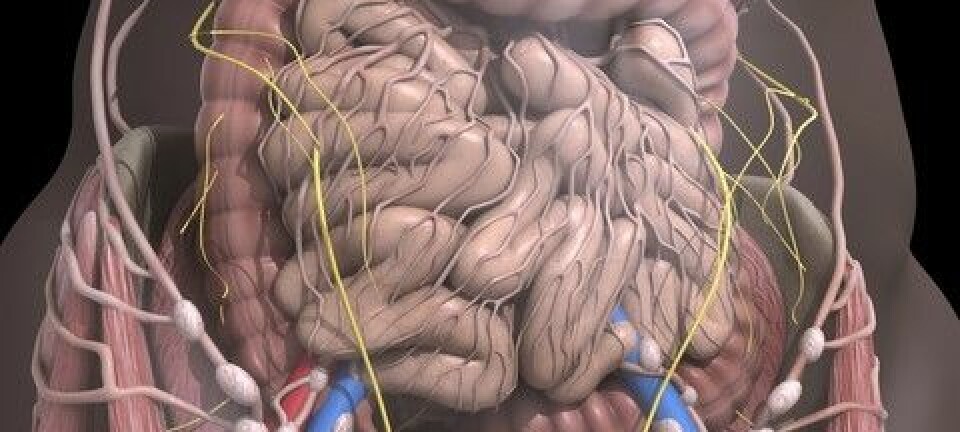
Intestinal researchers: We're wasting huge sums on overtreatment
Too much money is being spent on expensive treatment for patients with intestinal diseases who don’t need the treatment, argue researchers.
New and effective biological therapies for patients with intestinal diseases have become very popular with patients and doctors in the past ten years.
But this treatment is also expensive, and a new meta-analysis now argues that doctors are too generous with this expensive medication.
“It is our impression that there are patients with mild inflammatory bowel diseases who suffer from ordinary symptoms such as rumbling in the stomach and diarrhoea, but who still receive expensive treatment that’s intended for patients with severe inflammatory bowel diseases,” says Clinical Professor Ole Hagen Nielsen, MD, who specialises in the treatment of intestinal diseases at the Department of Gastroenterology, Herlev Hospital, Denmark.
He is the lead author of the new study, published in the New England Journal of Medicine, which reviews previous research on how patients with inflammatory bowel diseases should be treated.
It is our impression that there are patients with mild inflammatory bowel diseases who suffer from ordinary symptoms such as rumbling in the stomach and diarrhoea, but who still receive expensive treatment that’s intended for patients with severe inflammatory bowel diseases.
“We’re talking about those patients who previously had a severe inflammatory bowel disease, but who are reluctant to stop the treatment because they’re worried that they might get sick again – even after the illness has been resolved.”
Other treatments are cheaper
Nielsen’s colleague and co-author of the study, Mark Ainsworth, believes it is possible to reduce the number of expensive treatments:
“I have no doubt that if we took a look at all the treatments, we’d see that too much is being used of the expensive medicine,” he says.
“It’s not something we think is being done intentionally, but we believe there is a lot of money to be saved by treating differently from how we’re doing today.”
Cheaper treatments are just as effective
According to Nielsen and Ainsworth, it is possible to offer these patients cheaper treatment than they’re getting today, without it becoming less effective.
The expensive treatments, known as TNF inhibitors, inhibit the action of the tumour necrosis factor (TNF) protein, which plays a key role in the development of inflammation.
One of the reasons the authors believe that too many TNF inhibitors are being used is that some patients become tolerant to the treatment.
“Here, the procedure is to either give a double dose to increase the effect, or to use one the other TNF inhibitors, which are just as expensive,” says Ainsworth.
Earlier this year, Ainsworth co-authored a study which showed that there is money to be saved by analysing the patient’s blood to determine whether or not the medicine will work, rather than simply doubling the dose.
“Based on the analysis, it is possible to find out what the optimal treatment would be. Although such analyses cost money, it would still be cheaper than to use double doses of TNF inhibitors.”
Database can provide overview
The new article examines how treatment with TNF inhibitors should ideally be conducted.
According to Nielsen, the article may well form the basis for a global guideline in relation to the disease.
”Denmark does not have the exact same guidelines as our neighbours because the approach to treatment used to vary slightly, but our new article outlines everything we know about the use of these biological therapies.”
He also sees advantages in setting up a database that can register the use of the medication:
“If we set up a Danish database in which all patients who receive biological treatment are registered, we’d be better able to control how the expensive medicine is being used in the future.”
-----------------------
Read the Danish version of this article at videnskab.dk
Scientific links
- Tumor Necrosis Inhibitors for Inflammatory Bowel Disease; Ole Haagen Nielsen, Mark Andrew Ainsworth, DOI: 10.1056/NEJMct1209614
- ndividualised therapy is more cost-effective than dose intensification in patients with Crohn’s disease who lose response to anti-TNF treatment: a randomised, controlled trial, Casper Steenholdt, Mark Andrew Ainsworth, DOI: gutjnl-2013-305279










